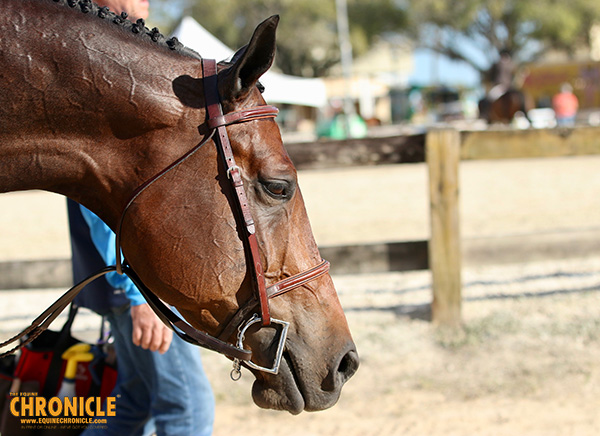Electrolyte Supplementation for Equine Athletes?

EC Blog by: Shelby Glessner
Adding electrolytes to the diet is frequently done in human athletics. This concept is often applied to equine athletes, but is supplementation of electrolytes in horses truly necessary?
About Electrolytes
Among many other purposes, electrolytes are minerals that help facilitate muscle contractions. The most well-known electrolytes are sodium, chloride, and potassium, but this group can also include trace minerals such as selenium and iodine. Sodium and chloride are the constituents of what we know as table salt. Generally, a horse’s diet should consist of 0.1 to 0.3% sodium and 0.3 to 0.45% potassium. Forages, especially alfalfa, are very high in potassium, and more than sufficient quantities of potassium will be consumed by horses on their own.
Who Needs Supplementing?
It is absolutely true that humans will require extra electrolytes due to athletic work! Consider munching on a banana during a race, which includes a kick of potassium that a typical salty snack may not have. In contrast, equine athletes rarely need to be supplemented with electrolytes. Electrolyte loss occurs in sweat, which is also the culprit of 90% of body weight losses during work. Extra hardworking horses that lose 2 to 3% or more of their body weight due to exercise will likely benefit from supplementation. If the horse isn’t sweating, he won’t be losing these nutrients! If they are lost, most electrolytes will be replaced quite quickly from stores in the gastrointestinal tract and from the normal diet. Horses that do lighter work or short races are in no danger of deficiency.
Electrolytes in Everyday Feeding
Maintenance horses will not require additional salt in their ration if fed a balanced diet. Either a salt lick or a bit of added salt in the grain will be perfectly sufficient. It is worth noting that commercial grain concentrates come already balanced with some added salts. If you mix your own grain with “natural” base feeds such as oats or corn, these will obviously not contain added salt and you may want to include some in your horse’s ration.
Research which minerals are abundant in your area before purchasing a salt block. For example, many states in the United States are low in selenium in the soil, meaning you the horse will not get any from the environment and will benefit from a selenium-added mineral lick. Also keep in mind that while alternative salt licks such as pink Himalayan salt may provide sufficient sodium and chloride, they can encourage imbalances including iodine deficiency that commercial salt and mineral blocks will have accounted for.
How to Supplement
In the case that your horse is truly in need of supplementation, it would do you well to avoid electrolyte pastes and flavored powders. These products are expensive relative to the quantity of electrolytes they actually contain and will not likely provide any benefit to the horse. Rather, use 1 tablespoon table salt and 1 tablespoon lite salt (which includes potassium) per hour of heavy exercise. This is much more wallet-friendly and can be purchased right at the grocery store.
If you would like to add electrolytes to water, you may certainly do so, directly after exercise (and don’t be afraid to water a hot horse!). However, you must be sure to provide plain water as well! While your horse may enjoy the taste of human sports drinks and drink water better this way, be advised that this is not an adequate way to actually supplement electrolytes.
It is not necessary to attempt to replenish all electrolytes lost during work. As previously mentioned, they will be gained back quickly through the diet and gut stores, so only replacing up to about 50% is sufficient. All extras will simply be excreted by the body.
As always, consult your veterinarian regarding your horse’s individual needs.
About
Shelby Glessner is a graduate of Michigan State University’s Animal Science program. She spent an academic year working with renowned researcher Dr. Stephanie Valberg in the Equine Neuromuscular Diagnostic Lab at MSU’s College of Veterinary Medicine and has undertaken extensive science and equine related coursework. Passionate about education, she hopes to pursue a career advocating for research-based practices in animal agriculture.










